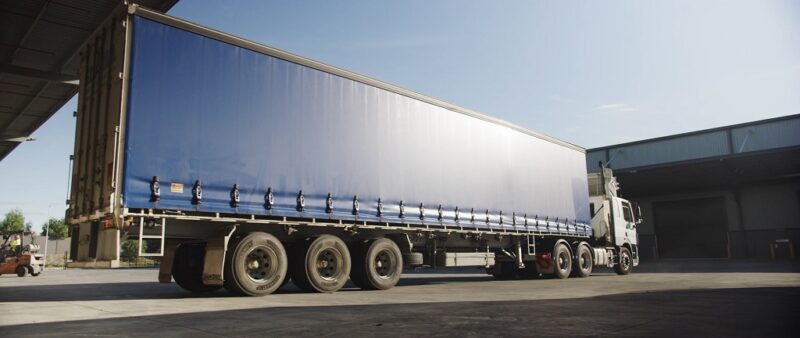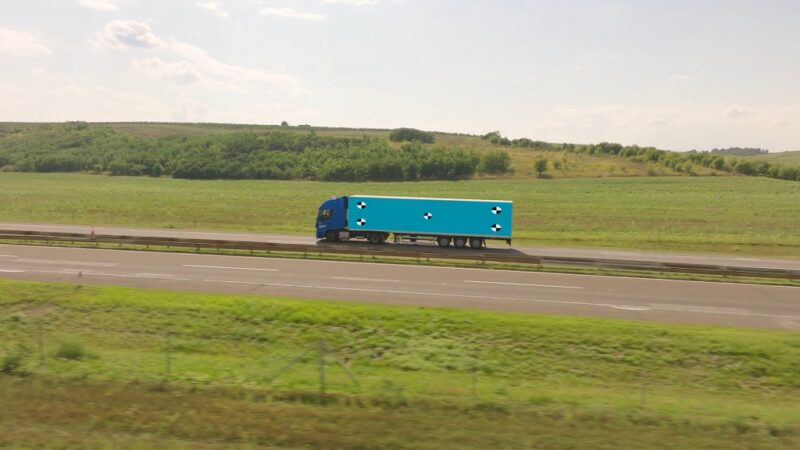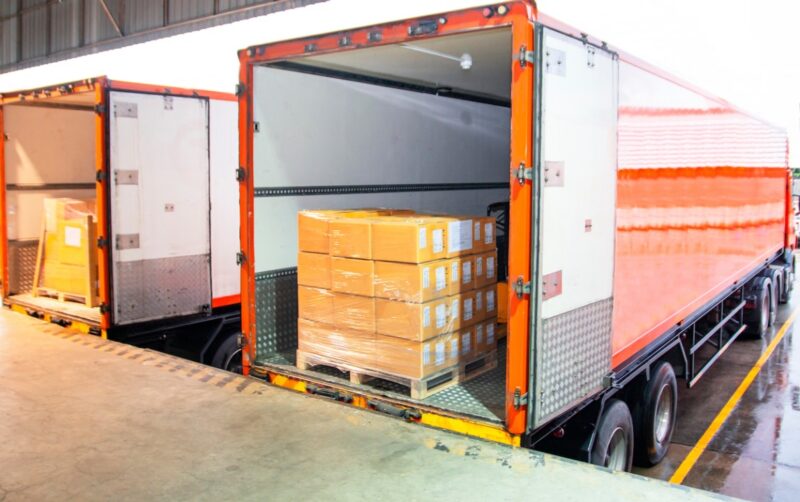FTL shipping, or full truckload shipping, is the fastest and most efficient freight option for businesses needing to move large volumes of goods across the United States.
Whether you’re a manufacturer delivering pallets of finished products or a retailer restocking inventory before peak season, FTL freight offers unmatched speed compared to LTL (less-than-truckload) shipping.
But with over 1.2 million trucking companies operating in the U.S. today (FMCSA, 2024), choosing the fastest and most reliable provider is far from simple.
The fastest FTL shipping services are concentrated around major freight corridors, especially in states like Texas, California, Illinois, Georgia, and Pennsylvania. These regions offer dense logistics infrastructure, high carrier availability, and direct interstate access – key factors for minimizing transit times.
According to the American Transportation Research Institute (ATRI), the average FTL transit speed on high-volume corridors ranges from 47 to 61 mph, depending on congestion and region.
Below is a quick look at average FTL transit times between key freight hubs:
| Route | Average FTL Transit Time | Notes |
| Los Angeles to Dallas | 2–3 days | High-volume west-south corridor |
| Chicago to Atlanta | 1.5–2.5 days | Dense Midwest-South route |
| New Jersey to Miami | 2.5–3 days | Seasonal delays may apply |
| Houston to Denver | 1.5–2 days | Oil & gas and retail lanes |
| Atlanta to Philadelphia | 2–2.5 days | Efficient I-95 East Coast segment |
These innovations have been shown to cut empty miles and increase route efficiency by as much as 23% (Geotab, 2023).
Why Speed Matters

Efficient delivery is crucial for success in the transport industry|Artlist.io
Full truckload (FTL) shipping refers to the use of an entire truck to move freight from origin to destination. This method is ideal for:
- Shipments over 10,000 pounds
- Palletized cargo
- Fragile or high-value items needing fewer touchpoints
According to the American Trucking Associations (ATA), FTL shipping makes up over 70% of long-haul freight in the US. The biggest draw? Speed and fewer stops. Because the truck is dedicated to one shipment, there’s no need for cross-docking or warehouse consolidation.
Where FTL Shipping Is Fastest in the US
Certain US regions naturally provide faster FTL freight service due to geography, infrastructure, and warehouse density.
Top 5 States for Fast FTL Turnaround
| State | Key Cities | Why It’s Fast |
| Texas | Dallas, Houston | Central location, I-10/I-35/I-45 hubs, major distribution zones |
| Illinois | Chicago, Joliet | Midwest hub, access to I-55, I-80, and major rail yards |
| Georgia | Atlanta, Savannah | Southeast trucking corridor, port access |
| California | Los Angeles, Fresno | Largest freight volume, West Coast import gateway |
| Pennsylvania | Philadelphia, Allentown | Northeast corridor access, low congestion in outer zones |

FTL shipping trucks ensure faster, more efficient delivery by dedicating the entire load to a single destination|Artlist.io
Texas tops the list because its tri-highway nexus (I-10, I-35, I-45) creates a “freight triangle” that lets carriers reposition trailers overnight between Gulf ports, petrochemical plants, and giant fulfillment hubs in Dallas–Fort Worth.
Shippers moving time-critical retail goods or refinery parts can book late-day pickups in Houston and still hit next-morning sortation windows in North Texas or Oklahoma.
Illinois follows closely: Chicago’s mile-deep pool of drivers, rail ramps, and 24-hour cross-dock facilities compresses dwell time. Loads can leave Joliet at midnight and reach Mid-South DCs before lunch the next day – one reason why 38 percent of mid-market manufacturers surveyed by IHA in 2024 chose greater Chicago for JIT replenishment.
Georgia leverages the Savannah port’s fast turn-times and Atlanta’s Hartsfield-Jackson air-cargo links.
This sea-to-freeway combo shaves an average of seven hours versus routing the same freight through congested Mid-Atlantic ports, making Atlanta a preferred hand-off point for high-value electronics and fresh produce.
California is unmatched for import velocity: drayage fleets in Los Angeles/Long Beach relay sealed containers straight to inland yards in Fresno and the Inland Empire, where FTL tractors head east without stopping at third-party warehouses.
That port-to-truck hand-off reduces terminal dwell by up to 28 hours compared with Oakland or Seattle.
Pennsylvania rounds out the top tier thanks to its I-78/I-81 “warehouse alley.” Shippers who stage freight in Allentown can blanket every major Northeast metro – Boston to DC – within a single driver’s Hours-of-Service clock, a critical edge during holiday surges.
These regions offer:
- High carrier availability
- Extensive interstate access
- Proximity to major distribution centers
Fastest FTL Freight Corridors by Route

FTL shipping enables faster and more direct freight delivery, reducing transit times across major highway corridors|Artlist.io
Here’s how long it typically takes to move FTL freight between high-volume metro areas:
| Route | Average FTL Time | Notes |
| Los Angeles → Dallas | 2–3 days | Heavy demand, fast-moving corridor |
| Chicago → Atlanta | 1.5–2.5 days | Direct Midwest-Southeast line |
| Dallas → Miami | 2–2.5 days | Key retail and food distribution |
| Newark → Charlotte | 1.5–2 days | High-speed I-95 segment |
| Delaware → New York | 1 day | Excellent prep center-to-market route |
Chicago → Atlanta (1.5–2.5 days). Direct I-65/I-75 routing avoids the Appalachians, letting teams run nearly non-stop between Midwestern plants and Southeastern DCs.
Dallas → Miami (2–2.5 days). I-20 and I-10 offer long, flat stretches where carriers use team drivers to meet strict grocery and pharma appointment windows.
Newark → Charlotte (1.5–2 days). The I-95 mega-corridor is notorious for traffic, but dedicated FTL lanes with night pickups bypass peak congestion and keep loads moving.
Delaware → New York (≈ 1 day). This lane is the sleeper hit for e-commerce sellers: freight pre-packed at a Delaware prep center clears tax-free, hops onto I-295, and arrives at NYC fulfillment nodes or borough retail stores in under 12 hours. For brands scaling online, especially those comparing the best fulfillment services for Shopify stores, this speed enables tighter order cutoffs, faster customer delivery promises, and leaner inventory positioning without absorbing added regional toll expenses.
How to Choose a Fast FTL Shipping Provider
When your delivery speed affects customer satisfaction or retail shelf deadlines, selecting the right FTL partner matters.
Checklist for Selecting a Fast FTL Carrier

Source: linkedin.com
Choosing the right full truckload (FTL) carrier isn’t just about getting goods from point A to point B, but about ensuring speed, reliability, and consistency every time. Here’s a more detailed checklist to help you separate the dependable partners from the risky ones.
1. Delivery Guarantees
Don’t settle for vague “estimated” delivery windows. A serious carrier provides clear, written guarantees on transit times. This gives you leverage if timelines aren’t met and helps you plan inventory with confidence. For region-specific solutions, shippers can also explore services which ensure fast and reliable full truckload options tailored to local needs, such as https://www.shiply.com/us/furniture-shipping/michigan-furniture-shipping.
Local expertise often means fewer delays and smoother routes.
2. Real-Time GPS Tracking
Modern supply chains demand visibility. Carriers that offer GPS-enabled tracking allow you to monitor shipments in real time, spot potential delays early, and communicate accurate ETAs to your customers. This transparency is especially valuable for high-value loads where accountability matters.
3. Terminal Proximity
The closer your carrier’s terminals are to major highways, ports, or distribution hubs, the faster freight can move. Proximity reduces idle time, cuts down on last-mile delays, and improves flexibility when unexpected route adjustments are needed.
4. Fleet Size and Coverage
A small fleet may be fine for occasional loads, but when you need speed and availability on short notice, size matters. A carrier with a larger and more diverse fleet is better positioned to accommodate urgent requests and adapt to seasonal demand spikes.
5. Experience with Your Industry
Every sector has its quirks. Food shipments may require temperature-controlled trailers, pharmaceuticals demand strict compliance and chain-of-custody protocols, and retail loads often come with tight delivery windows. Choosing a carrier familiar with your industry’s standards reduces risks and ensures smoother handoffs.
6. Prep Center Integration
For Amazon FBA sellers or e-commerce brands using fulfillment centers in states like Delaware, prep center integration is a game-changer. Carriers who already have established workflows with these centers can reduce errors, accelerate intake, and keep your stock moving faster into customer-facing inventory.
Final Takeaway
If speed matters in your logistics strategy, choosing fast FTL shipping is non-negotiable. Whether you’re shipping from a prep center in Delaware or moving goods across the Midwest corridor, the key is knowing where infrastructure, carrier availability, and fast routes intersect.
Fast FTL service is not just about distance – it’s about networks, carrier efficiency, and location.
Now that you know which states, routes, and providers deliver the fastest results, you can confidently pick a shipping solution that keeps your business moving on time.




